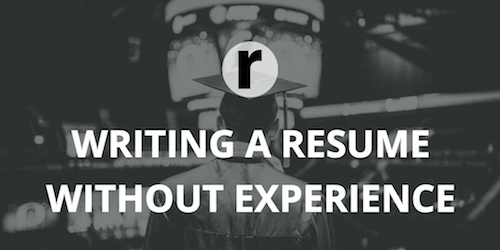
Looking for a job without prior work experience is no easy task, especially when you've just graduated from college or university. But worry not! You may have a lot of qualities that can attract an employer or recruiter. Qualities like your energy and enthusiasm, desire to work for great results, willingness to learn new skills and knowledge, etc.
The gist is to give your absolute best to a potential employer. On the other hand, if you don't have the time or resources to hire a professional company from any of the Resumance reviews, don't fret because you can make a resume yourself. Simply follow the tips below to help you get on the right track.
List down the skills you've gained in college / university
Sometimes, an employer doesn't have the faintest idea how the skills you've gained as a student can help you in an actual work environment. As a candidate, your goal is to showcase these skills by writing them down in your CV.
Try to figure out what these specific skills are and highlight those that you think are critical for you as a professional. And then, compare them with the requirements of the employer and write them down in your resume. For instance, if you had to work with a lot of statistical information during your studies, add this to your resume as part of your competencies. You can do the same for when you have extensive experience in public speaking, as it's a useful skill for many job posts. By writing in the resume practical skills, you immediately show the employer that you have a lot of advantages up your sleeves, even when you're just a fresh graduate.
Show your willingness to learn
One unconditional advantage that you may have over other, more experienced candidates could be your willingness to learn and develop new skills that are necessary in the company you wish to apply in. With this in mind, you can add in your resume the courses, training programs, workshops, and internships you've participated in during your time as a student. It's also worth noting the skills and knowledge you've gained during the course of your practice or training.
Showcase important activities and events
Also worth adding in your CV are additional activities you have participated in during your study period. This can be club or organization activities, volunteer work, participation in large conferences and seminars, among others.
The main thing is to not overdo it. You don't need to provide an endless list of all the school activities you took part in as a student. Try to figure out what exactly can impress an employer and be considered a real merit.
Languages you've learned / mastered
Fluency to write and/or speak in a foreign language is always a huge plus in any profession. As a rule, language skills not only give you higher chances to get employed, but also have a positive effect on your starting salary.
Even if it's just at the primary level, don't forget to write the languages you've learned or are familiar with, in your CV. Even basic knowledge can add weight to your resume (for instance, if you've taught two languages in college or you've completed additional language-related courses).
Don't take the cover letter for granted
In a situation where work experience (or the lack thereof) can put you at a disadvantage, a cover letter may become your main assistant.
A cover letter tends to have a more personal character. It's where you can show in detail that you are an active, responsible, motivated, and results-oriented candidate. Make sure to concisely write and explain why getting the position is important to you, including what you know and can offer to the company.
With the help of a cover letter, you can direct the employer's attention to your strongest points as a candidate. Read our latest blog to find out more about effective tips and tricks to writing a cover letter.
Find a personal / character reference
Personal references or recommendations are some of the most important things employers expect to see in your resume. Find someone who can serve as your personal reference. These individuals should be at your fingertips. It's also important to add them to the cover letter that you'll be sending along with your resume.
If you have teachers, mentors, or coaches from whom you've taken additional courses with, ask them if they can be your personal or character reference. Potential employers may want to contact them and they will be able to answer questions in detail. But remember: Relatives or roommates must NOT be included in your list of personal references.
Be consistent with the employer
Adjust your resume to a specific employer. While it takes up a lot of time, it will surely boost your chances of success.
Carefully examine an employer's list of requirements and compare them with the skills you possess. Don't just focus on revealing your strengths - show them the exact traits and qualities they're looking for in a job-seeker.
In most cases, you don't even have to completely rewrite your resume. However, make sure to clarify some points and add keywords (main terms used by the employer), as well as set out requirements for the vacancy.
Posted by Abigail Jackson
Abigail Jackson is the Editor-in-Chief at Resumance. After earning her degree in Psychology and working for several years as a career adviser, she is now working as an independent career consultant and a seasoned resume writer. You can get in touch with Abigail on Twitter @theresumance.


Comments